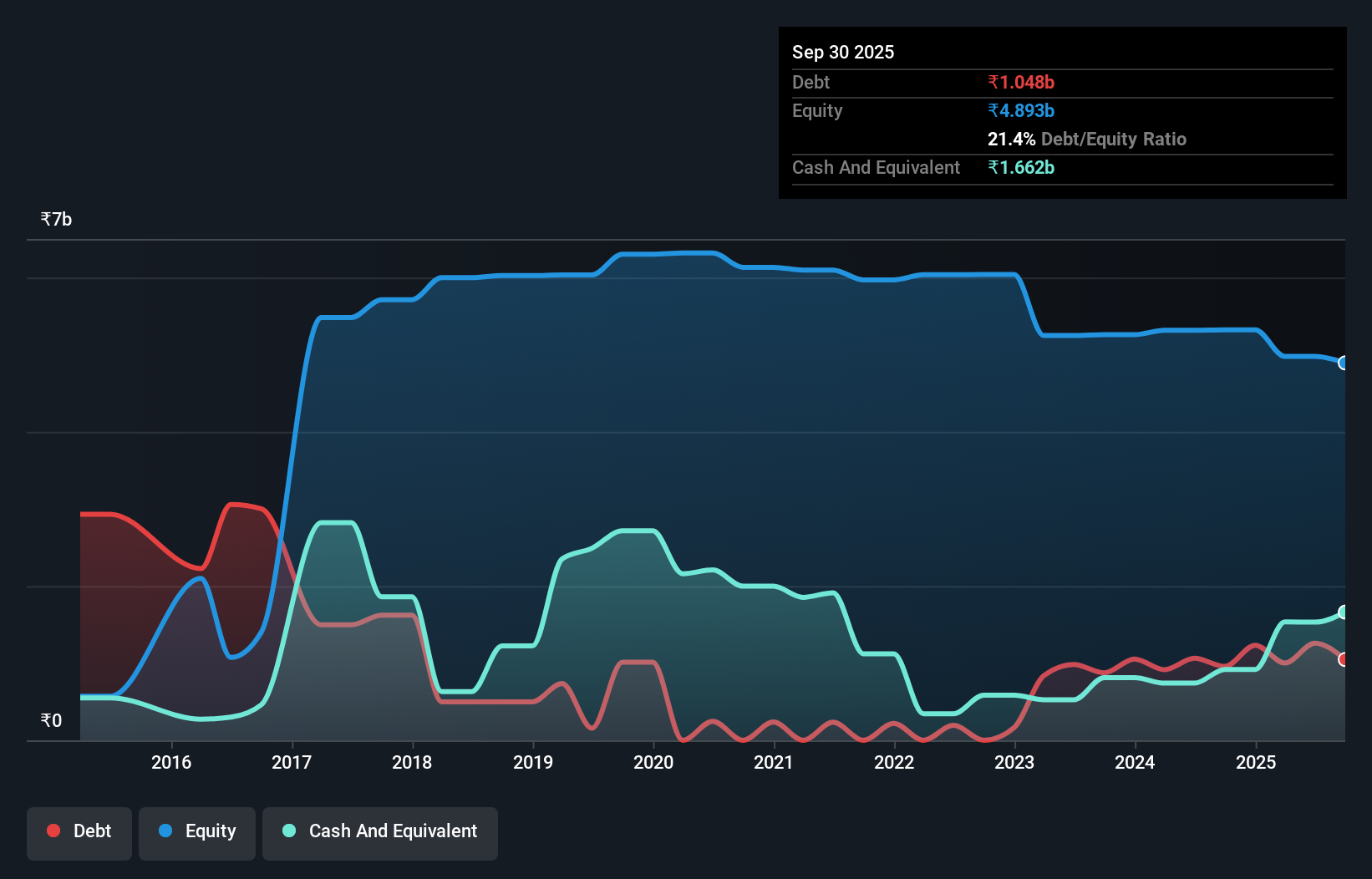Music Broadcast (NSE:RADIOCITY) Has Debt But No Earnings; Should You Worry?
Warren Buffett famously said, 'Volatility is far from synonymous with risk.' So it seems the smart money knows that debt - which is usually involved in bankruptcies - is a very important factor, when you assess how risky a company is. As with many other companies Music Broadcast Limited (NSE:RADIOCITY) makes use of debt. But is this debt a concern to shareholders?
What Risk Does Debt Bring?
Generally speaking, debt only becomes a real problem when a company can't easily pay it off, either by raising capital or with its own cash flow. If things get really bad, the lenders can take control of the business. However, a more frequent (but still costly) occurrence is where a company must issue shares at bargain-basement prices, permanently diluting shareholders, just to shore up its balance sheet. Of course, the upside of debt is that it often represents cheap capital, especially when it replaces dilution in a company with the ability to reinvest at high rates of return. The first thing to do when considering how much debt a business uses is to look at its cash and debt together.
What Is Music Broadcast's Debt?
The image below, which you can click on for greater detail, shows that at September 2025 Music Broadcast had debt of ₹1.05b, up from ₹958.1m in one year. However, it does have ₹1.66b in cash offsetting this, leading to net cash of ₹613.7m.

How Strong Is Music Broadcast's Balance Sheet?
According to the last reported balance sheet, Music Broadcast had liabilities of ₹1.40b due within 12 months, and liabilities of ₹286.6m due beyond 12 months. On the other hand, it had cash of ₹1.66b and ₹637.1m worth of receivables due within a year. So it actually has ₹615.2m more liquid assets than total liabilities.
This surplus suggests that Music Broadcast is using debt in a way that is appears to be both safe and conservative. Given it has easily adequate short term liquidity, we don't think it will have any issues with its lenders. Succinctly put, Music Broadcast boasts net cash, so it's fair to say it does not have a heavy debt load! When analysing debt levels, the balance sheet is the obvious place to start. But you can't view debt in total isolation; since Music Broadcast will need earnings to service that debt. So if you're keen to discover more about its earnings, it might be worth checking out this graph of its long term earnings trend.
Check out our latest analysis for Music Broadcast
Over 12 months, Music Broadcast made a loss at the EBIT level, and saw its revenue drop to ₹2.1b, which is a fall of 13%. That's not what we would hope to see.
So How Risky Is Music Broadcast?
While Music Broadcast lost money on an earnings before interest and tax (EBIT) level, it actually generated positive free cash flow ₹7.0m. So although it is loss-making, it doesn't seem to have too much near-term balance sheet risk, keeping in mind the net cash. We'll feel more comfortable with the stock once EBIT is positive, given the lacklustre revenue growth. The balance sheet is clearly the area to focus on when you are analysing debt. But ultimately, every company can contain risks that exist outside of the balance sheet. For example, we've discovered 1 warning sign for Music Broadcast that you should be aware of before investing here.
At the end of the day, it's often better to focus on companies that are free from net debt. You can access our special list of such companies (all with a track record of profit growth). It's free.
New: Manage All Your Stock Portfolios in One Place
We've created the ultimate portfolio companion for stock investors, and it's free.
• Connect an unlimited number of Portfolios and see your total in one currency
• Be alerted to new Warning Signs or Risks via email or mobile
• Track the Fair Value of your stocks
Have feedback on this article? Concerned about the content? Get in touch with us directly. Alternatively, email editorial-team (at) simplywallst.com.
This article by Simply Wall St is general in nature. We provide commentary based on historical data and analyst forecasts only using an unbiased methodology and our articles are not intended to be financial advice. It does not constitute a recommendation to buy or sell any stock, and does not take account of your objectives, or your financial situation. We aim to bring you long-term focused analysis driven by fundamental data. Note that our analysis may not factor in the latest price-sensitive company announcements or qualitative material. Simply Wall St has no position in any stocks mentioned.
About NSEI:RADIOCITY
Music Broadcast
Engages in the operating of FM radio stations under the Radio City brand name in India.
Mediocre balance sheet and slightly overvalued.
Market Insights
Community Narratives



